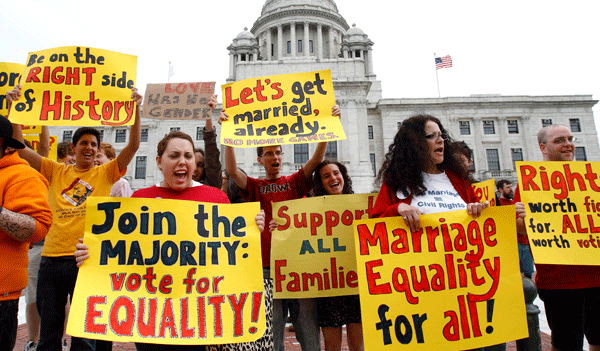
The Evolving Institution of Marriage: A Legal Historical Perspective
The History News Network and The Conjugal State of Affairs
The University of Richmond, in collaboration with the History News Network, illuminates the evolution of the institution of marriage within the context of America’s socio-political landscapes. This exploration, stretching back from the Enlightenment era to the present day, carefully attempts to separate the ideal from the actual state of marriage.
Marriage: A Mirror of Government
As initially theorized by Baron de Montesquieu, the French Enlightenment thinker, marriages in the United States evolved to symbolize the form of government. They were voluntary unions, built on the premise of reciprocal rights and responsibilities. Interestingly, the ideal conception often stood in stark contrast to the reality of these unions.
The State, The Federal, and The Marriage
For a long time, marriage was a purely state affair until the 1996 federal intervention with the Personal Responsibility and Work Opportunity Reconciliation Act (PRWORA). The Act created block grants to states, permitting welfare funds expenditure on marriage-related programs. The federal presence further complicated the narrative of marriage, highlighting the underlying tension between the idealistic and the real versions of this institution.
The Dichotomy of Marriage: Ideal and Real
While ideally a lifetime commitment, the truth of American marriages has always been much more complex. On the settled frontier, common law marriages emerged, reflecting the lived circumstances of many couples. Even as marriage laws tightened in the 20th century, states facilitated quick divorces, reflecting the changing societal realities. From avant-garde religious communities practicing complex or polygamous marriages to the rise of the Sexually Open Marriage in the swinging sixties, marriage’s definition morphed continuously in America.
The Institution of Marriage: Crisis, Evolution, and Prospects
Even today, as traditional marriage faces an existential crisis, compounded by the advent of domestic partnerships, there lies a heightened demand from the LGBTQ+ community for marriage equality. The question here is, are they seeking marriage as a symbolic institution or craving the legal and economic advantages it offers?
Marriage Benefits: Gaps and Disadvantages for Unmarried Couples
The complications and disadvantages tied to unmarried partnership range from issues pertaining to inheritance absence of bereavement leave and lack of insurance coverage, raising valid questions about the need for equitable changes within the institution. While some of these gaps are slowly being filled by laws on domestic partnerships, challenges remain.
Refashioning The Marriage Institution: A Need of the Hour
As its role and meaning continue to evolve with societal changes, it is crucial to rethink what marriage should involve. Such revisions have occurred sporadically throughout history, fundamentally altering the institution. The hope is that this continued evolution will ensure that marriage adapts according to the needs and realities of each generation.
Religion and The State: A Fine Balance
While religious interpretations of marriage have been reinterpreted over the past centuries, the legal boundaries must evolve too. It is essential to acknowledge that state views and religious views on marriage might not always align. They haven’t always aligned in the past, and there is no reason to assume they should now.
As such, it may be time for a comprehensive redefinition of what constitutes marriage. Such a review should consider the legal implications and the changing societal dynamics, ensuring the institution continues to reflect and nurture the values of inclusivity, equity, and mutual responsibility.
Originally Post From https://www.hnn.us/article/11777
Read more about this topic at
V. K. Rajwade – Vivāha saṃsthāko itihāsa
Research projects


